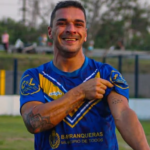
American Woman wakes up with New Zealand accent following coma
Published on November 3, 2021 at 2:42 PM by Mc Noel Kasinja
An American woman who’d never been to New Zealand now speaks in a Kiwi accent following a two-week coma.
“I don’t remember anything about that day,” Summer Diaz, 24, told Jam Press about her inadvertent Kiwi dialect.
The accent-inducing accident occurred Nov. 25, 2020 while the Los Angeles native was returning home from her job working with children with autism. Diaz was walking in the crosswalk, on the way to retrieve her vehicle, when she was struck by an SUV.
The driver dialed emergency services, whereupon the car-crash victim was transported to the nearest hospital. Doctors subsequently discovered that Diaz had sustained a plethora of injuries, including a broken pelvis and brain injury, and placed her into a medical coma.
During the two weeks she was unconscious, the poor gal’s family and boyfriend couldn’t visit regularly as it was during the coronavirus pandemic.
When the patient came to, she was reportedly disoriented and confused.
“I could hear people saying, ‘You’re at the hospital, Summer,’ ” described Diaz, recalling that she was initially unable to speak.

While the gal gradually regained her speech, she noticed changes to her voice — which she initially chalked up to being intubated during her coma, Jam Press reported.
“I remember trying to speak to people and my voice sounded different,” said the perplexed patient.
Diaz’s suspicions were heightened when her boyfriend, who is from the UK, visited her at the hospital and noticed that she was “enunciating quite a bit” — although he said he couldn’t hear it too well at the time.
Diaz subsequently went to rehab, where she worked with a speech therapist to regain her verbal communication skills. And while her speech improved, her foreign accent also became more pronounced, eventually reaching the point where nurses didn’t believe that Diaz was from the US.

Summer has since cycled through a smorgasbord of intonations during recovery, with some voices lasting just several hours and others remaining for months.
“I had a very British accent, close to my boyfriend’s for a while,” explained Diaz of her Robin Williams-esque impression arsenal. “I had a French one at one point and, briefly, I was Russian.”
She’s finally settled on an Australian or New Zealand accent, which is so convincing, apparently, that people think the Cali girl hails from Down Under.
“I went back to the fire station to meet the people who brought me to hospital the other day and give them cake,” explained Diaz, who has never traveled to New Zealand. “I saw the fire chief and I could tell on the phone he had an accent, but when I met him, he said, ‘Is that an Australian or New Zealand accent?’ “
She added, “I explained it was New Zealand, but he asked where I was from and I had to say I’m from here, and he laughed.”

After spending around a month in the hospital and rehab, Diaz was deemed healthy enough to return home, whereupon she obtained a psychology degree while undergoing outpatient treatment. During that time, she discovered — through a combination of internet research and an MRI — that she was suffering from “foreign accent syndrome,” a disorder that “causes a sudden change to speech so that a native speaker is perceived to speak with a ‘foreign’ accent,’ ” according to research by the University of Texas. FAS is most often the result of brain damage caused by a stroke or traumatic brain injury and currently has no cure despite being known to go away on its own.
In a similar FAS incident this past May, an Australian gal claimed that she woke up with an Irish brogue following tonsil surgery. However, doctors found the patient’s case especially vexing as she didn’t exhibit any of the other neurological symptoms associated with the syndrome.
Diaz, for one, is having fun with her collision-induced “Crocodile Dundee” impression.
“If I get hit by a car but get to the keep the accent, I’m OK with that — that’s the best part. That’s fun,” said the bemused woman. “I was always texting my friends telling them I really want to keep it because I really like accents.”
In fact, when meeting new people, Diaz often has trouble deciding whether to pretend she’s a New Zealander or explain her entire backstory to a total stranger.
The downside is that Diaz has apparently suffered lasting damage from the incident.
“I’m exhausted often. I am left with a lifelong disability. I cannot work long hours at work, my stamina is poor and I cannot do simple everyday activities,” lamented the beleaguered woman. “I rely on a cane when my leg aches and a wheelchair for long distances or for areas where I would have to be standing for a long period of time.”

As a result, she relies on a caregiver to prepare meals and execute other household chores.
Working with autistic children while suffering from FAS has also “been a bit tricky for me,” she said.
“I pronounce my name as ‘Sum-mah’ and sometimes they hear it as ‘So-Mah,’ ” explained Diaz. “I have had kids be confused if my accent switches the next day, so much to the point where they have asked where the other Summer went as they don’t quite understand my condition.”
However, the ordeal has taught Diaz to be grateful for what she has.
“I almost died, so I try to enjoy the things I want to enjoy and be kind to others,” she said. “I appreciate art and books more and enjoy the company of my loved ones more.”
Ultimately, Diaz views her condition “as something that will always be a conversation starter and a story to tell.”


